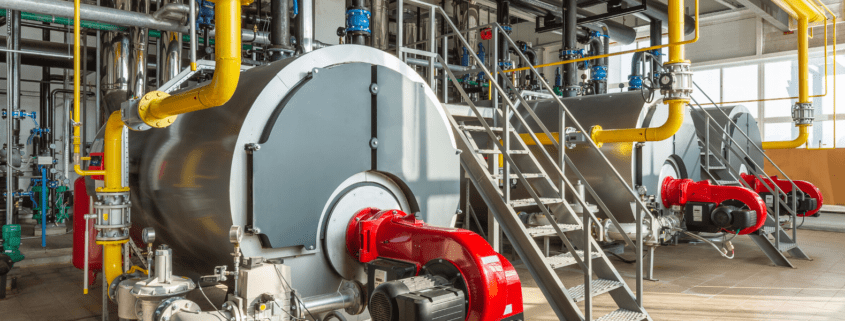What Chemical is added to Control Hardness in a Boiler?
One of the problems that may occur when using a boiler is water hardness, which is the primary cause of sludge or scale building up and can significantly decrease the efficiency of a boiler. Even a small amount of scale buildup can cause negative effects by decreasing the flow of water through pipes, preventing the effective distribution of heat. This hardness typically results from multiple elements being present in the water, including:
- Calcium ions
- Magnesium ions
- Iron ions
- Silica ions
What can you do to prevent this problem in your boiler?
One of the most common chemicals that is added to boilers is sodium hydroxide, also known as caustic soda, which is usually part of an alkaline solution that is used to prevent the scale buildup and corrosion of the boiler. Sodium hydroxide works perfectly as a treatment to prevent corrosion by increasing the alkalinity of the boiler, specifically by keeping the pH at around 10 to 15.
Sodium hydroxide has a chemical formula of NaOH and a molecular weight of about 40 g/mol. The boiling point of sodium hydroxide is about 1,388 degrees Celsius. Though low levels of sodium hydroxide do not cause systemic toxicity, it is still highly corrosive and can severely damage the eyes and skin if certain precautions are not taken.
Why is sodium hydroxide work as a treatment for your boiler?
In terms of effective methods to prevent water hardness and corrosion, raising the pH and alkalinity of the boiler is extremely beneficial for many reasons. Having an alkaline pH in the boiler will create a protective oxide coating, such as iron oxide, to form on the inner boiler surface, which protects against corrosion of the metal.
Sodium hydroxide can be combined with other chemicals to create solutions, such as diethyl ethanolamine or sodium nitrite, which will aid in the alkalinization of the water and prevent corrosion of metal. Sodium hydroxide is also a desirable choice for boiler treatment because it does not form carbon dioxide, which can present other issues such as potentially forming carbonic acid. Sodium hydroxide solutions can also act as oxygen scavengers, which bind to free oxygen to create further prevention of scale buildup and corrosion.
Looking for Water Treatment Chemicals?
Looking for a solution to control hardness in your boiler? Our chemical experts at EcoLink are here to assist you in finding the best product for your industrial or business needs. Reach out to our team here today!




